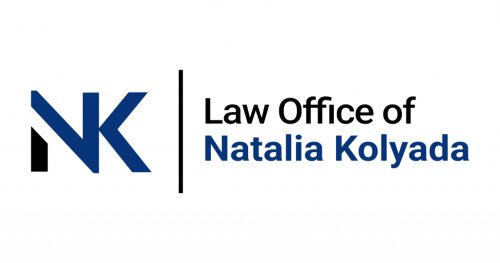Best Citizenship Lawyers in Boston
Share your needs with us, get contacted by law firms.
Free. Takes 2 min.
List of the best lawyers in Boston, United States
About Citizenship Law in Boston, United States:
Citizenship in Boston, United States is governed by federal laws and regulations set forth by the U.S. Citizenship and Immigration Services (USCIS). Individuals can become U.S. citizens through birth, naturalization, or derivation. It is essential to understand the requirements and processes involved in obtaining and maintaining citizenship status in Boston.
Why You May Need a Lawyer:
Seeking legal advice from a lawyer specializing in Citizenship law in Boston may be necessary in various situations such as applying for naturalization, dealing with citizenship documentation issues, or facing deportation proceedings. A lawyer can provide guidance, support, and representation to ensure your rights are protected throughout the citizenship process.
Local Laws Overview:
Key aspects of local laws in Boston related to Citizenship include residency requirements, English language proficiency, passing the citizenship test, and demonstrating good moral character. Failure to meet these requirements can result in delays or denials in the citizenship application process.
Frequently Asked Questions:
1. Can I apply for U.S. citizenship if I have a criminal record?
Having a criminal record may impact your eligibility for U.S. citizenship. It is essential to consult with a lawyer to understand how your criminal history may affect your citizenship application.
2. How long does the citizenship application process take?
The citizenship application process timeline can vary depending on individual circumstances. On average, it can take 6 months to 1 year to complete the process.
3. Do I need to speak English to become a U.S. citizen?
Yes, English language proficiency is a requirement for obtaining U.S. citizenship. However, there are exceptions for certain individuals, such as those with disabilities.
4. What is the citizenship test, and how can I prepare for it?
The citizenship test assesses your knowledge of U.S. history, government, and civics. It is essential to study and prepare for the test by reviewing study materials provided by USCIS.
5. How can I replace a lost or stolen citizenship certificate?
If your citizenship certificate is lost or stolen, you can file Form N-565 with USCIS to request a replacement. It is recommended to consult with a lawyer for assistance with this process.
6. Can my citizenship be revoked?
Your citizenship can be revoked if it was obtained fraudulently or through misrepresentation. It is crucial to comply with all laws and regulations to maintain your citizenship status.
7. What are the benefits of becoming a U.S. citizen?
Becoming a U.S. citizen grants you the right to vote, travel with a U.S. passport, petition for family members' immigration, and access certain government benefits and protections.
8. How do I renounce my U.S. citizenship?
If you wish to renounce your U.S. citizenship, you must follow specific procedures outlined by the U.S. Department of State. It is advisable to seek legal advice before making this decision.
9. Can I pass my citizenship to my children?
Citizenship can be passed to children through birth or by applying for derivative citizenship. It is essential to understand the requirements for transmitting citizenship to your children.
10. What is the difference between permanent residency and citizenship?
Permanent residency (Green Card) allows you to live and work in the U.S., while citizenship grants you additional rights, such as voting and running for public office. Citizenship also provides protection from deportation.
Additional Resources:
For more information on Citizenship in Boston, consider reaching out to the Massachusetts Immigrant and Refugee Advocacy Coalition (MIRA), the Mayor's Office for Immigrant Advancement, or consulting with an immigration lawyer specializing in Citizenship law.
Next Steps:
If you require legal assistance with Citizenship in Boston, contact a reputable immigration lawyer who can provide guidance and representation throughout the citizenship process. Be prepared to provide documentation to support your case and follow all instructions provided by your lawyer to ensure a successful outcome.
Lawzana helps you find the best lawyers and law firms in Boston through a curated and pre-screened list of qualified legal professionals. Our platform offers rankings and detailed profiles of attorneys and law firms, allowing you to compare based on practice areas, including Citizenship, experience, and client feedback.
Each profile includes a description of the firm's areas of practice, client reviews, team members and partners, year of establishment, spoken languages, office locations, contact information, social media presence, and any published articles or resources. Most firms on our platform speak English and are experienced in both local and international legal matters.
Get a quote from top-rated law firms in Boston, United States — quickly, securely, and without unnecessary hassle.
Disclaimer:
The information provided on this page is for general informational purposes only and does not constitute legal advice. While we strive to ensure the accuracy and relevance of the content, legal information may change over time, and interpretations of the law can vary. You should always consult with a qualified legal professional for advice specific to your situation.
We disclaim all liability for actions taken or not taken based on the content of this page. If you believe any information is incorrect or outdated, please contact us, and we will review and update it where appropriate.












